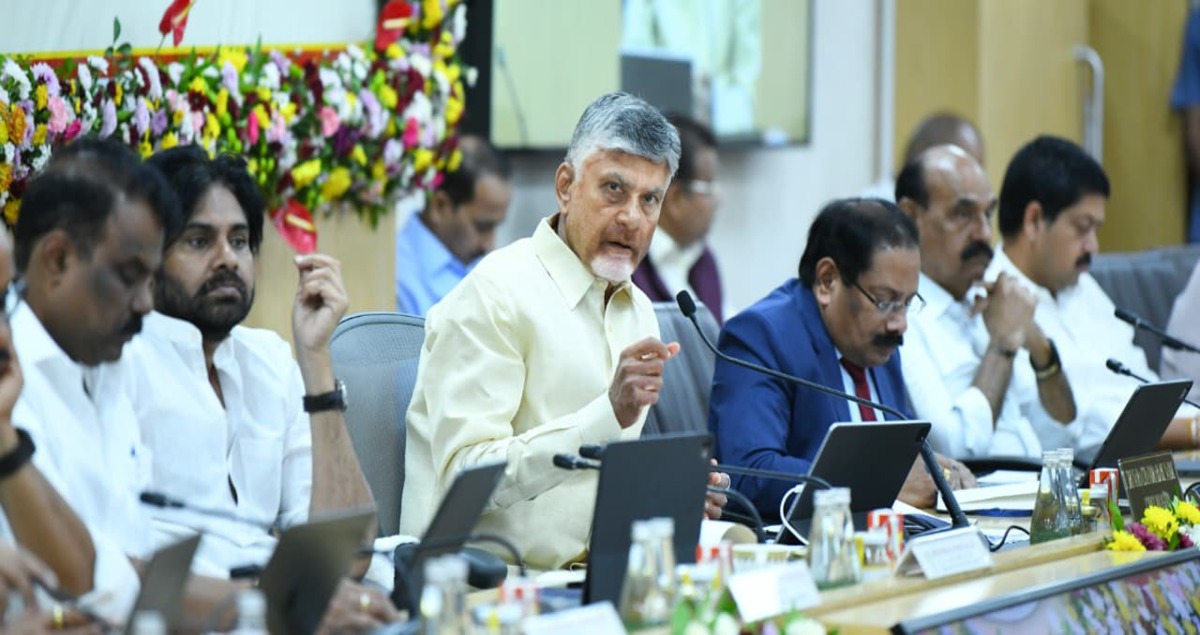CM N Chandrababu Naidu Unveils Major Governance, Revenue, and Law-and-Order Reforms
Chief Minister N. Chandrababu Naidu on Tuesday announced a wide-ranging plan to improve governance, revenue administration, and law-and-order at the District Collectors’ Conference. He stressed accountability, transparency, and the use of technology, saying all initiatives must focus on increasing “citizen satisfaction.”
Nearly 60% of public complaints come from revenue services. Mr. Naidu criticised the previous government’s Land Titling Act, saying it caused disputes. “The new legislation protects citizens’ assets. We will complete land re-surveys, correct records, and issue geo-tagged, QR-coded ownership documents by 2027. Over one crore village-level property documents will be available under the Swarnapanchayat Portal,” he said.
On natural resources, the Chief Minister directed officials to install CCTV at red sanders depots in Tirupati. He also asked them to set up an experience centre to showcase value-added products and to fully exploit the global potential of red sanders.
In urban governance, he urged municipal authorities to use satellite imagery to detect illegal structures, speed up BPS-LRS schemes, and ensure proper drainage in new layouts.
Discussing GST 2.0, Mr. Naidu said the State would gain nearly Rs 8,000 crore annually. A State-wide awareness drive from September 22 to October 22 will educate citizens about lower taxes, including zero GST on life and health insurance. Ministers, Collectors, and elected representatives will lead the campaign.
The Chief Minister also announced plans to rate government services for better accountability. He instructed senior officials to rely on real-time field-level data from RTGS systems rather than repeatedly requesting reports from Collectors. “All government files must be uploaded online within two months. Forensic auditing tools will prevent manipulation. By November, Data Lake and RTGS district centres will be operational,” he added.
For digital governance, five young IAS officers have been assigned innovation projects. Mr. Naidu also unveiled designs for Quantum Valley buildings, which will house 3,000-qubit quantum computers and workspace for 80,000 professionals.
On law and order, he said overall crime has dropped 4%, but cybercrime has increased 16%, causing monthly losses of around ₹30 crore. He called for intelligence-led policing, expanded forensic capacity, and more CCTV coverage. Citing Singapore’s model of “visible policing supported by invisible technology policing,” he set targets to reduce overall crime by 30% and serious crime by 50%. Sensitive cases, including the Sugali Preeti case, should be resolved quickly or referred to the CBI.
Regarding drug control, Mr. Naidu demanded a sustained crackdown on ganja trade and consumption. He also called for world-class de-addiction and rehabilitation centres. In excise operations, he asked for 100% online payments, and in mining, he urged higher revenues and value addition.
On public welfare, he said the State would continue providing free sand, with citizens paying only transport costs. “Public satisfaction matters. People should not face obstacles when transporting sand,” he said.
Concluding the session, Mr. Naidu reiterated that the success of all reforms—in revenue, taxation, law enforcement, and technology—will be measured by citizen satisfaction. “Every reform we undertake must lead to greater trust, transparency, and benefits for the people,” he said.



